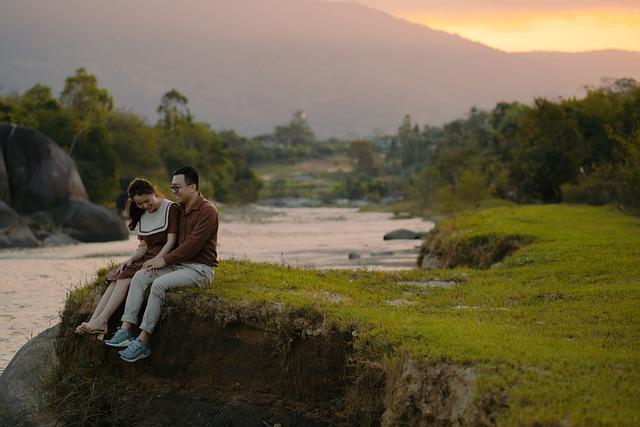In a important diplomatic move, IranS foreign Minister is set to visit Armenia on Monday, as confirmed by a spokesperson from teh Mehr News Agency.This visit comes amidst a backdrop of evolving geopolitical dynamics in the region,where both countries are keen to strengthen bilateral relations. The meetings are expected to focus on key areas of cooperation, including economic ties and regional security issues, following a period of heightened tensions in the South Caucasus. As Iran seeks to bolster its influence and Armenia aims to navigate its own complex geopolitical landscape,this visit represents a crucial step in fostering dialog and collaboration between the two neighboring nations.
Iranian Foreign Minister’s Upcoming Visit to Armenia: Key objectives and Agenda

The upcoming visit of the Iranian Foreign Minister to Armenia is set to focus on strengthening bilateral relations between the two nations. Among the key objectives of the visit, discussions are expected to encompass a range of topics, including economic cooperation, regional stability, and cultural exchanges. The minister aims to enhance collaboration in various sectors and foster mutual understanding thru diplomatic dialogue.
In addition to high-level meetings, a series of agreements regarding trade and infrastructure progress are likely to be tabled.The agenda will also address pressing regional issues, such as the geopolitical dynamics of the South Caucasus and the implications of increasing foreign influence in the area. Key points on the agenda include:
Trade facilitation: Exploring opportunities to expand bilateral trade.
Energy Cooperation: joint projects to enhance energy security.
Security Collaboration: Strategies to address regional threats.
Geopolitical Implications of the Iran-Armenia Diplomatic Engagement

The recent diplomatic engagement between Iran and Armenia marks a significant shift in the political landscape of the South Caucasus. With the anticipated visit of the Iranian foreign minister,Tehran is not only reinforcing its ancient ties with Yerevan but also seeking to assert its influence in a region that has been increasingly characterized by tensions and shifting alliances. This visit comes amid ongoing concerns regarding azerbaijan’s territorial ambitions and its ties with turkey and Israel, which could be perceived as a threat by both Iran and Armenia. The diplomatic dialogue could serve multiple strategic purposes:
Strengthening bilateral trade: Enhanced economic cooperation may promote stability and create a counterbalance to Azerbaijan’s assertive policies.
Cultural diplomacy: Iran’s cultural and historical connections with Armenia can provide a unified front against external pressures.
Security collaborations: Joint efforts to address regional security challenges, such as border protection and counter-terrorism.
Additionally, Iran’s move to engage with Armenia could have broader implications for its relationships with neighboring countries, particularly in the context of the ongoing geopolitical dynamics involving Russia and the West. With Armenia historically aligned with Russia, Iran’s deepening partnership could prompt moscow to recalibrate its approach towards Yerevan and its periphery. The potential for trilateral or multilateral talks may arise, focusing on regional security arrangements and trade agreements that not only benefit Iran and Armenia, but also other key players invested in the region’s stability. The implications of these developments could reshape alliances and rivalries, reinforcing Iran’s position as a crucial actor in the broader South Caucasus geopolitical chessboard.
Historical Context of Iran-Armenia Relations and Recent Developments

The relationship between Iran and Armenia has evolved significantly over the centuries, shaped by geopolitical realities and cultural ties. Historically, both nations have shared a line of communication through various empires, particularly during the era of the Persian empire and the subsequent Iranian dynasties. Iran’s proximity to Armenia has fostered a longstanding partnership,especially amid regional tensions involving neighboring Azerbaijan and Turkey. The mutual interests in security, trade, and cultural exchange have reinforced this bond, particularly in light of Armenia’s reliance on iran as a vital trade route following its strategic isolation after the collapse of the Soviet Union.
In recent developments, Iran’s foreign minister’s upcoming visit underscores the importance of continued cooperation in areas such as energy, defense, and infrastructure. Key points of focus during this diplomatic engagement are anticipated to include:
Energy Supplies: Enhancing energy connections to meet Armenia’s growing needs.
Border Security: Collaborative measures concerning border management and counter-terrorism.
Cultural Exchange: Initiatives aimed at promoting shared heritage and cooperation in education.
This visit serves not only to reaffirm bilateral commitments but also to navigate the complexities of regional dynamics, especially in the context of Armenia’s fraught relations with Azerbaijan. By engaging with Armenia, Iran aims to secure its influence in the South Caucasus and fortify its strategic interests in a tumultuous landscape.
Potential Outcomes and Challenges facing the Diplomatic Talks

The upcoming visit of the Iranian foreign minister to Armenia signifies a pivotal moment for diplomatic relations in a region marked by historical tensions. Several potential outcomes may arise from these talks, including the strengthening of bilateral relations and the possible establishment of new trade agreements. Such partnerships could enhance economic stability for both nations, promoting mutual benefits in sectors like energy, agriculture, and technology. Furthermore, the diplomatic dialogues may lead to collaborative efforts addressing pressing regional security concerns, particularly in the context of increased geopolitical competition.
Though, numerous challenges may impede the progress of these negotiations. Domestic political pressures within both Iran and Armenia could complicate consensus-building. Additionally, external influences from larger powers in the region, such as Turkey and Russia, may alter the dynamics of the discussions. Key obstacles include differing priorities that each nation may hold regarding territorial integrity, ideological alignments, and historical grievances, which could lead to a stalemate.The accomplished outcome of these talks will depend on the ability of the involved parties to navigate these complex challenges while fostering a spirit of cooperation.
Recommendations for Strengthening Bilateral Ties Beyond the Visit

The anticipated visit of Iran’s Foreign Minister marks an important step in enhancing relations between Armenia and Iran. To build on this development, a multifaceted approach can be pursued to strengthen bilateral ties in the long run. This can encompass economic collaborations through trade agreements and joint ventures, ensuring that both nations can leverage their geographical positions and resources. Additionally, cultural exchanges can play a crucial role in fostering greater understanding, which could include student exchange programs, art exhibitions, and shared historical projects that reveal the depth of their intertwined histories.
Furthermore, the establishment of a Bilateral Cooperation Committee could serve as a formal platform for dialogue and collaboration on strategic issues. This committee might address sectors such as energy, security, and technology, which are critical for both nations. To facilitate these discussions, regular joint seminars and workshops can be organized, focusing on specific themes relevant to both countries. Below is a table highlighting potential areas of cooperation:
Area of Cooperation
Possible Initiatives
Trade and Economy
Trade agreements,joint ventures in key industries
cultural Exchange
Student exchange programs,art exhibitions
Security Cooperation
Joint defense training,intelligence sharing
Technological Collaboration
Research partnerships,startup incubators
Reactions from Regional Powers and Their Impact on the Visit’s Success

The impending visit of Iran’s Foreign Minister to Armenia has stirred considerable interest among regional powers, each of whom has its own strategic considerations regarding Armenia’s geopolitical landscape. nations like Azerbaijan and Turkey are watching closely, as Armenia’s increasing cooperation with Iran may shift regional alliances and influence balances. Reactions from Azerbaijani officials have been particularly vocal; they are concerned that enhanced Iranian-Armenian ties could result in a strengthening of Armenia’s military capabilities, thereby challenging Azerbaijan’s interests in the ongoing tensions over Nagorno-Karabakh. The Turkish government, while supporting Azerbaijan, is also analyzing the ramifications of Iran expanding its foothold in a country that historically walks a fine line between competing influences.
Additionally, Russia, as a conventional ally of Armenia, will likely monitor the situation with mixed feelings. On one hand,Moscow may welcome further Iranian engagement as a counterbalance to Turkish and Western encroachment in the region; on the other hand,it must be cautious not to lose its grip on Armenia.The collective responses from these powers could significantly impact the success of the visit, shaping not only bilateral relations between Iran and Armenia but also influencing broader regional dynamics. The following table summarizes the positions of key regional players and their potential impact on this high-stakes diplomatic event:
Country
Position
Potential Impact
Azerbaijan
Concerned about military enhancement
Increased tensions and potential escalation
Turkey
Supportive of Azerbaijan
Possible diplomatic strain with Iran
Russia
Weighing opportunities and threats
Potential shift in influence over Armenia
Future Outlook
the upcoming visit of the Iranian foreign minister to Armenia underscores the importance of diplomatic engagement in the region. As Iran seeks to strengthen its ties with Armenia amid shifting geopolitical dynamics, this visit may pave the way for discussions on cooperation in various sectors, including trade, security, and cultural exchange.Observers will be closely monitoring the outcomes of this meeting, which comes at a time of heightened interest in the relationships between neighboring countries in the South Caucasus.As further developments unfold, the implications of this visit may extend beyond bilateral relations, potentially influencing broader regional stability and cooperation. Stay tuned for updates on this significant diplomatic engagement.
Author : Asia-News
Publish date : 2025-03-24 13:58:00
Copyright for syndicated content belongs to the linked Source.